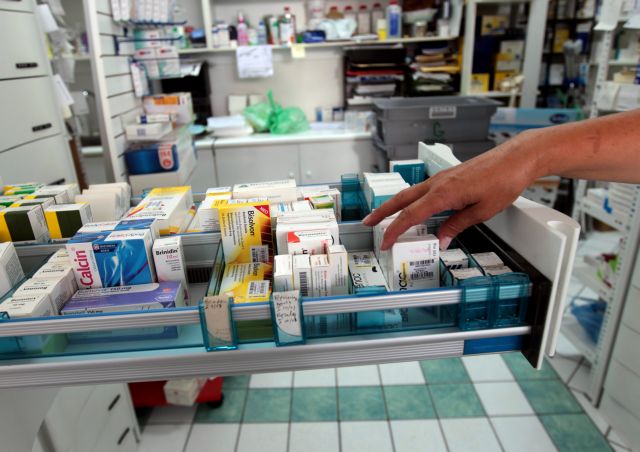
A growth rate of 7% and total online sales of 69 million euros were recorded by Online Pharmacies, during the first quarter of 2023. The average price of the value of the electronic basket increased by 9% and stands at 43.70 euros compared to 42.90 in the corresponding period of 2022.
Purchases from online pharmacies do not include over-the-counter medicines (non-prescription medicines), as Greece is the only country in Europe that has not been harmonized with European Directive 2011/62/EU and European Regulation 699/2014 , while it has not even implemented the relevant OECD recommendation for online pharmacies, as recorded in a report by the Organization in 2017 on the competitive conditions of the sector. In fact, the joint ministerial decision of April 20, 2022 determines that in Greece it is forbidden to sell MISIFA online, and they can only be available in physical pharmacies.
These data along with many more valuable findings are included in the quarterly report published on Friday by Convert Group.
Among the categories that increased in value (€) of online purchases at 3-month level, the following stand out: +7% in beauty and personal care products, +2% in nutritional supplements and vitamins and +2% in baby and children’s items. Health products experienced a 31% drop in sales, as products that were long in the highest demand positions (such as protective masks and coronavirus diagnostic tests) are no longer a priority for the buying public.
The biggest finding of Convert Group’s quarterly report is that for the first time in years there is restraint in discounting on online channels, as the percentage fell to 38% on Recommended Retail Price from 43% in the corresponding period last year.
In the marketing channels, on a quarterly basis, Google ads are still in first place bringing 45% of the total transactions, and marking an increase of 6 points compared to the previous year. Also, price comparison platforms are responsible for 15% of transactions, while Organic Results for 14%
Consumers continue to show their preference towards mobile & tablet devices for making their online purchases with a percentage of 67% compared to desktop & laptop devices (32%). In terms of placing orders, morning and midday hours (9:00-12:00 and 12:00-15:00) are preferred, while Monday and Tuesday are the most popular days.
Latest News

Greece Defines Continental Shelf Limits and Maritime Zones in Landmark EU Document
The Maritime Spatial Planning (MSP) framework represents a comprehensive approach to spatial planning and is crucial for the successful development of a blue and circular economy

EU Praises Greece’s RRF Progress as Revised Recovery Plan Nears Completion
Athens is preparing to submit its revised “Greece 2.0” Recovery and Resilience Plan after Easter, with a slight delay from the initial timeline but with the European Commission’s approval.

Greek €200M 10Y Bond to be Issued on April 16
The 3.875% fixed-interest-rate bond matures on March 12, 2029, and will be issued in dematerialized form. According to PDMA, the goal of the re-issuance is to meet investor demand and to enhance liquidity in the secondary bond market.

German Ambassador to Greece Talks Ukraine, Rise of Far Right & Tariffs at Delphi Economic Forum X
Commenting on the political developments in his country, the German Ambassador stressed that it was clear the rapid formation of a new government was imperative, as the expectations across Europe showed.

Athens to Return Confiscated License Plates Ahead of Easter Holiday
Cases involving court orders will also be excluded from this measure.

Servicers: How More Properties Could Enter the Greek Market
Buying or renting a home is out of reach for many in Greece. Servicers propose faster processes and incentives to boost property supply and ease the housing crisis.

Greek Easter 2025: Price Hikes on Lamb, Eggs & Sweets
According to the Greek Consumers’ Institute, hosting an Easter dinner for eight now costs approximately €361.95 — an increase of €11 compared to 2024.

FM Gerapetritis Calls for Unified EU Response to Global Crises at EU Council
"Europe is navigating through unprecedented crises — wars, humanitarian disasters, climate emergencies," he stated.

Holy Week Store Hours in Greece
Retail stores across Greece are now operating on extended holiday hours for Holy Week, following their Sunday opening on April 13. The move aims to accommodate consumers ahead of Easter, but merchants remain cautious amid sluggish market activity.

Green Getaway Ideas for Easter 2025 in Greece
Celebrate Easter 2025 in Greece the sustainable way with eco-farms, car-free islands, and family-friendly getaways rooted in nature and tradition.









































 Αριθμός Πιστοποίησης
Αριθμός Πιστοποίησης